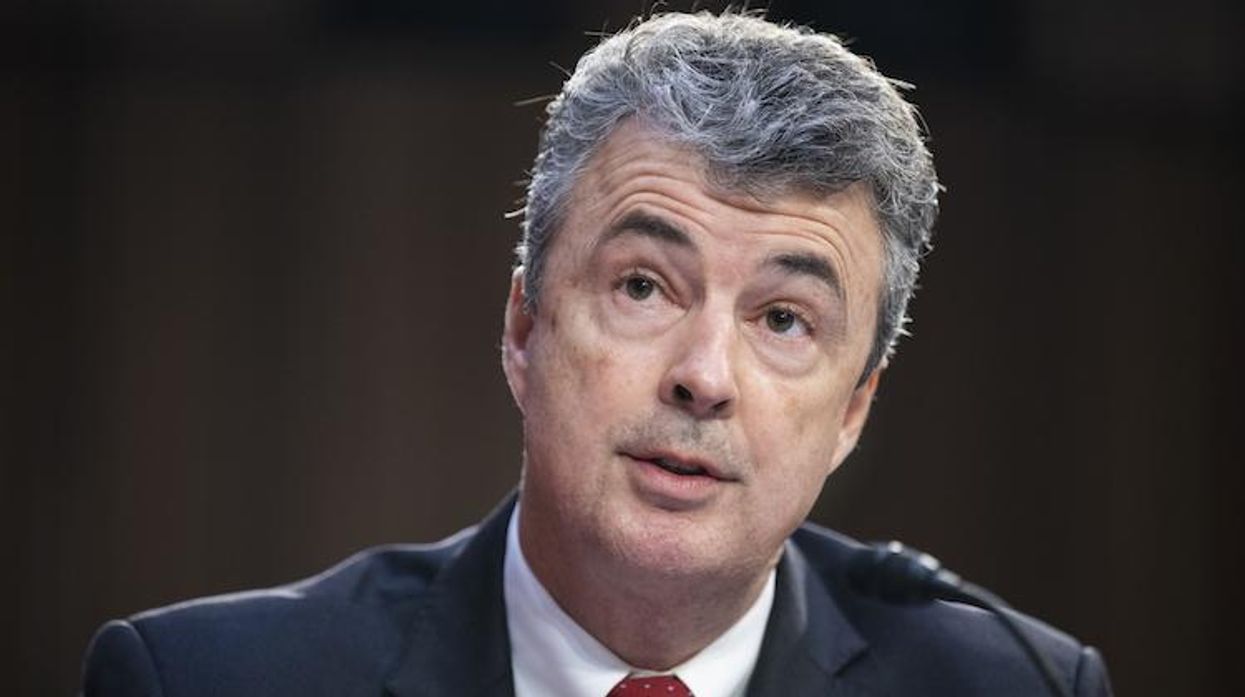Less than a week after the U.S. Supreme Court overturned Roe v. Wade, Alabama has used the ruling in an attempt to prohibit gender-affirming health care to trans youth and to trans adults.
Affirming fears from LGBTQ+ rights groups about what the decision could mean for queer rights, the state is seeking to lift a federal court's injunction that blocked an April law that made providing puberty blockers or hormones to youth a felony offense. Those found guilty of doing so could be punished with up to 10 years in prison.
Alabama's attorney general's office filed a brief Monday that made similar arguments found in the SCOUTS decision, according to the Associated Press. Namely, the state argues that gender-affirming care isn't "deeply rooted in our history or traditions," which is directly taken from the Dobbs v. Jackson Women's Health Organization ruling on abortion rights.
Because it is not "rooted" in U.S. history, Alabama claims it can ban the treatments. In the brief, the state also argues for a ban not only on gender-affirming care to youth, but to transgender adults as well.
"No one -- adult or child -- has a right to transitioning treatments that is deeply rooted in our Nation's history and tradition. The State can thus regulate or prohibit those interventions for children, even if an adult wants the drugs for his child," the brief states. "The Constitution reserves to the State--not courts or medical interest groups--the authority to determine that these sterilizing interventions are too dangerous for minors."
The brief also states, "Just as the parental relationship does not unlock a Due Process right allowing parents to obtain medical marijuana or abortions for their children, neither does it unlock a right to transitioning treatments. The Constitution reserves to the state -- not courts of medical interest groups -- the authority to determine that these sterilizing interventions are too dangerous for minors."
April's law, signed by Republican Gov. Kay Ivey, faced several lawsuits after it was passed, which argued that the legislation would harm trans children. A federal court blocked parts of the law in May. Most medical organizations support gender-affirming care for trans minors, saying that limiting it could be harmful to trans youth.
Shannon Minter, legal director of the National Center for Lesbian Rights, told the AP that while it's the first instance of using the Dobbs ruling this way, "It won't be the last."
"It is no surprise that Alabama and other extremely conservative states are going to take up that invitation as forcefully as they can," Minter told the news wire. "Justice Thomas's concurrence was a declaration of war on groups already under attack, and we expect the hostility to be escalated."
Thomas's concurring opinion targeted marriage equality, private consensual sex, and contraception.
If Texas passes a law banning same-sex intimacy, Attorney General Ken Paxton, a Republican, would be "willing and able" to defend it in court, he told a talk show host last weekend, and he implied he'd challenge other hard-won rights cited by Thomas.
"Would you, as attorney general, be comfortable defending a law that once again outlawed sodomy? That questioned Lawrence again or Griswold or gay marriage that came from the state legislature to put to the test what Justice Thomas said?" Leland Vittert, an anchor on the NewsNation cable network, asked Paxton.
"Yeah, I mean, there's all kinds of issues here, but certainly, the Supreme Court has stepped into issues that I don't think there was any constitutional provision dealing with," Paxton replied. "They were legislative issues. And this is one of those issues. And there may be more."
He added, "Look, my job is to defend state law, and I'll continue to do that. That is my job under the Constitution, and I'm certainly willing and able to do that." He said he'd have to see the actual legislation, but "ultimately, if it's constitutional, we're going to go defend it."
















Charlie Kirk DID say stoning gay people was the 'perfect law' — and these other heinous quotes
These are some of his worst comments about LGBTQ+ people made by Charlie Kirk.